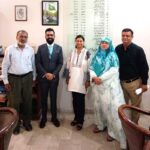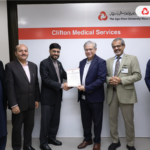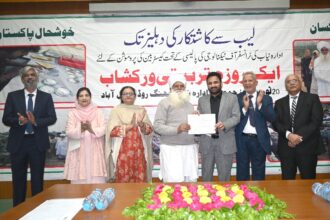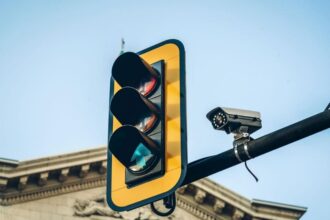Islamabad– The Centre for Social Justice (CSJ) in collaboration with Blackhole hosted an event featuring the screening of the award-winning documentary film ‘Hum Saya – Neighbor’ and a panel discussion in Islamabad. The event commenced with a screening of CSJ’s documentary film based on the true stories of the families of minor girls who had been forcibly converted in Pakistan. The film won the award for Best Short Documentary on Human Rights at the prestigious Venice Intercultural Film Festival in 2023, and it has been selected for its fifth international screening, including at the 7th FICNOVA in Spain in 2024.
Available at: https://www.youtube.com/watch?v=iInvFMdMGi8
Prominent human rights experts including; Dr. Pervez Hoodbhoy, Peter Jacob, Executive Director CSJ, Farhat Ullah Babar, Former Senator, Harris Khalique, Secretary General HRCP, Activists Tahira Abdullah, and Dr. Riaz Ahmed Shaikh addressed the pressing issue of forced conversions and child marriages in Pakistan. The speakers emphasized that coerced conversions violate fundamental human rights, yet remain largely unaddressed due to governmental inaction. The speakers called on the government and legislative bodies to introduce and implement legal and administrative safeguards to protect underage girls from forced religious conversions and marriages.
The speakers underlined that the half-hearted efforts made by federal and provincial governments in the past, failed to cultivate empathy for strengthening protections against forced conversions and child marriages. They stressed the urgency of comprehensive reforms to safeguard the rights and dignity of girls and women, against using religion as a cover for human rights violations.
They stressed that the adoption of legal procedures for conversion and marriage under judicial oversight was crucial. Moreover, statements and evidence can be properly examined to ensure that there is no coercion involved. This would help distinguish between voluntary and coerced conversions, as well as forced and wilful marriages, thereby upholding religious diversity, freedom, and the rule of law.
They agreed that no individuals particularly children should be forced to enter into marriage and revoke their religion, therefore legislation criminalizing the act of forced conversions, and strictly enforcing 18 years as the minimum legal age for both religious conversion and marriage is imperative, in line with rulings issued by the Lahore High Court in 2019, Federal Shariat Court in 2021, and Islamabad High Court in 2022.
They quoted CSJ data revealing that at least 338 cases of abduction and forced religious conversions of minority girls and women were reported in Pakistan during 2021 and 2023, which underscores the credibility of these complaints. However, the speakers lamented that government authorities and religio-political groups have been denying the existence of forced conversions of minority girls, and resisting legal reforms to curb child marriage, and forced conversions to protect women and girls, such as the Sindh Assembly’s Criminal Law (Protection of Minorities) 2016 and the Prohibition of Forced Conversions Bill 2021, have been stalled, reflecting a lack of political will of duty-bearers to address these human rights challenges.






